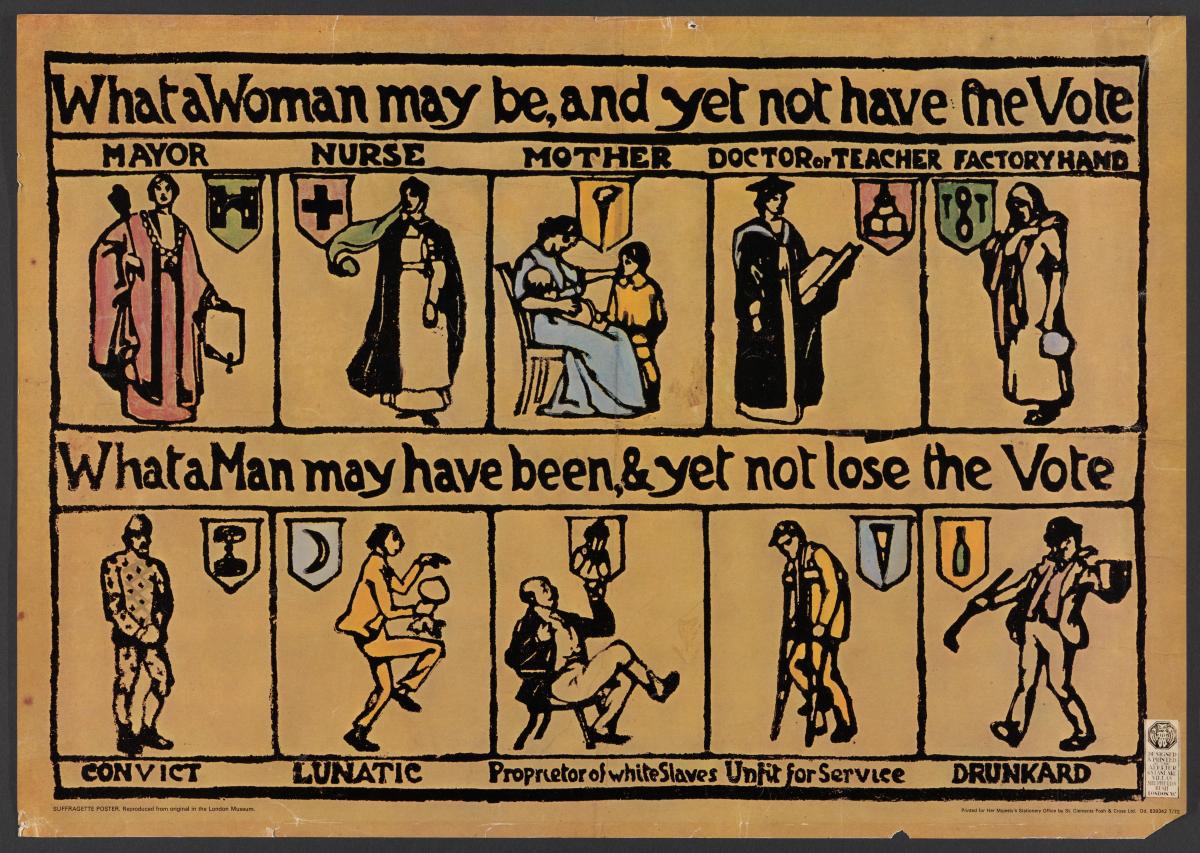My day is always brightened when I see an image like this circulated around London. The people around here need to be constantly reminded of their responsibility to embrace the fact that women can do anything that a man can do in this world if given the time and education to realize their dreams. The fact that we make up half of the people in this country and still do not have any say on what goes on in the governing seems as unjust as anything that I can imagine. That someone like me can create a successful business from the ground up with nothing but the knowledge I’ve gained in my life and still not vote is absurd. In light of this, I am glad I have started to support the cause of women again. In my youth, I believed that simply by becoming an author or starting a business that these achievements would be enough to make changes in at least my own social sphere, and they have. But I realize now that it is not enough, that there are millions of other women who do not have the respect that should be given them. Posters like these make me want to take up the cause again. There are so many aspects of life in England where women deserve more respect and observance of our contributions, and I believe that it starts with the vote. Men will not give this respect away until we are equals in everything including deciding the future of everyone in the empire. One final thought I had on this piece that I take great comfort in was that it was written and drawn up by a man by the name of Laurence Housman. This is one reason why I married Lord Watergate, because he is a man that respects me for who I am and what I want to accomplish for myself in life. He sees me as an equal in a partnership, not a subordinate in a social ladder. That there are men out there who take our causes seriously and support women as equals gives me hope that down the road, perhaps many years from now it will be commonplace.
Editorial Commentary:
Our protagonist Gertrude connects deeply with the imagery depicted here from a poster put out by the Suffrage Atelier, an artist's collective headed chiefly by men who put out illustrations and posters around London in support for the suffrage movement and anything corresponding with increased equality and respect for women as a whole. The context of the image comes right before the Fourth Reform Act of 1918, which was the first bill passed giving any woman the right to vote. Even then, it still only allowed those women over the age of 30 who were property owners the ability to vote. The imagery draws out her ire at the unfairness that successful women in many different aspects of the workforce are not given the power of voting while any man, no matter how degenerate they are receives this right. There is a strong connection between Gertrude’s voice and the new woman ideal. The hopes for radical social change from the expectations of women to remain, sole proprietors of the house, is felt strongly. The juxtaposition between the realities of what accomplishments women can achieve and still not earn more political power is a distinct unfairness. It is a strange paradox and an unjust action perpetrated by a society that simultaneously values the work and actions of these successful women on one hand yet denies them many basic rights such as voting on the other. This is reflected in every sentence of our author. She makes a note of appreciation that it was drawn and written by a man, for something that is often forgotten and was a sad reality was that in order for anything of any magnitude to be achieved, there would have to men that supported it. And men like Laurence Housman are the drivers of this cause in aiding them. Yet, it must be known that it takes countless strong-willed women like Gertrude to champion their own cause.
Citation:
“Laurence Housman.” Wikipedia, Schlesinger Library, RIAS, Harvard University, 23 Mar. 2021, en.wikipedia.org/wiki/Laurence_Housman#/media/File:What_a_woman_may_be_and_yet_not_have_the_vote._Suffrage_Atelier._(16051439552).jpg.
“The British Representation of the People Act (1918).” Towards Emancipation?, University of North Carolina, hist259.web.unc.edu/the-british-representation-of-the-people-act-1918/#:~:text=This%20act%20was%20the%20first%20to%20grant%20national,1918%2C%20allowing%20women%20to%20be%20elected%20to%20Parliament.


